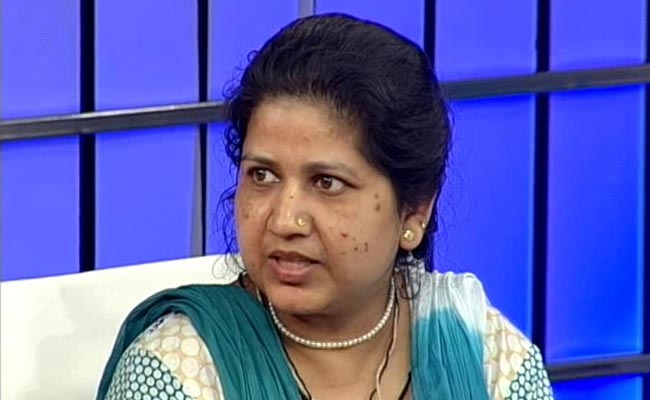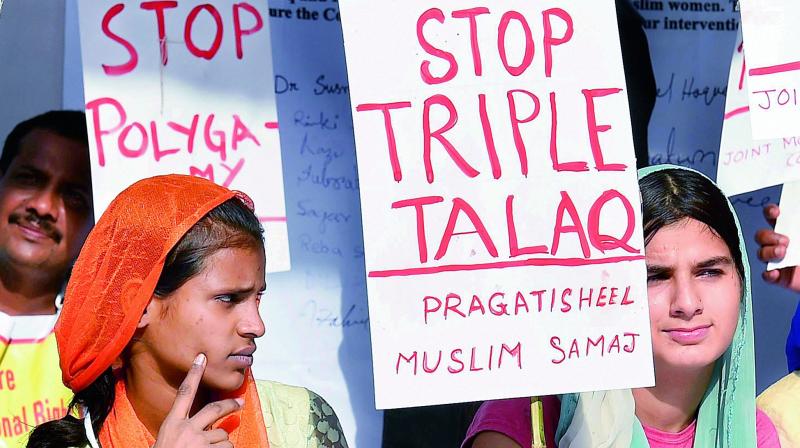Srinagar: The Supreme Court on Tuesday, struck down the ‘controversial’ Islamic divorce practice of instant triple talaq (Talaq-e-Biddat), saying it was arbitrary and against the tenets of Islam.
The verdict was delivered by five senior most judges of different faiths.
Triple Talaq (also known as Talaq-e-Mughallazah — Irrevocable divorce) is a form of divorce that is practiced by Muslims in India. It has been a subject of controversy and debates within the country, raising the issues of justice, gender equality, human rights and secularism. The Government of India and the Supreme court of India have been involved in addressing the issues.
Previously Shaho Bano 1985, Imrana 2005 created a lot controversies regarding the same issue.
The most recent case which awakened the national platforms again regarding the Muslim Personal Law is the case of Shayara Banu. Shayara Banu in 2016 filed a petition in Supreme Court against the practice of instantaneous triple talaq, quoting her fundamental rights as a citizen of India.

Shayaro Bano
Banu’s husband Rizwan allegedly tortured her for dowry after marriage and abused her mentally and physically. When her condition deteriorated, she was asked to go to her parental home until she recovered. After six months, Shayara received a Talaqnama through the post, and it was deemed that the divorce was executed by her husband. Her in-laws didn’t even allow her to talk to her children.
Banu didn’t accept this practice of triple talaq and petitioned the Supreme Court.
The All India Muslim Personal Law Board (AIMPLB) criticised this move stating that the only thing the centre wants out of this case is Uniform Civil Code (UCC) and they have allegedly said that this is a ‘ploy’ to impose UCC on the community (“Centre Trying to Impose uniform civil code,” 2016).
Triple Talaq is a form of divorce practiced in India, whereby a Muslim man can legally divorce his wife by pronouncing talaq (the Arabic word for divorce) three times. The pronouncement can be oral or written, or, in recent times, delivered by electronic means such as telephone, SMS, email or social media. The man need not cite any cause for the divorce and the wife need not be present at the time of pronouncement. After a period of iddat, during which it is ascertained whether the wife is pregnant with a child, the divorce becomes irrevocable.
In a 3-2 verdict, the top court said instant triple talaq — under which women have been divorced in one go even over email, WhatsApp and letters — was against Article 14 of the Constitution, which guarantees the right to equality.
“Talaq-e-Biddat (instant divorce) is manifestly arbitrary which allows a Muslim man to break down a marriage whimsically,” the five-judge SC bench said.
 The minority view of two judges, Chief Justice of India JS Khehar and justice Abdul Nazeer, said the practice of triple talaq should be put on hold for six months and the government should bring a law to regulate the practice by then. The final verdict overrides the minority view.
The minority view of two judges, Chief Justice of India JS Khehar and justice Abdul Nazeer, said the practice of triple talaq should be put on hold for six months and the government should bring a law to regulate the practice by then. The final verdict overrides the minority view.
During the hearing in the top court, the government had come out against the controversial practice and said it would bring a law to regulate marriage and divorce among Muslims if triple talaq was struck down. Prime Minister Narendra Modi last year said he believed triple talaq was destroying women’s lives.
But the All India Muslim Personal Law Board, a non-governmental body that lobbies for the application of Muslim personal law, opposed any ban on the practice, arguing that it was a religious matter and not for the courts to decide.
The judgment came two years after Shayara Bano approached the top court after her husband of 15 years sent her a letter with the word ‘talaq’ written thrice to divorce her.
Since then, other women have filed separate petitions in the Supreme Court, pleading for an end to the custom. The top court then clubbed all the petitions.
“Triple talaq is against the basic tenets of Islam,” said justice Kurien Joseph, who was part of the majority view.
“Instant triple talaq is arbitrary and violative of Article 14 of the Constitution. It must be struck down,” said justice Rohinton Nariman.
Article 14 of the Constitution of India provides for equality before the law & equal protection within the territory of India and prohibits discrimination on grounds of religion, race, caste, sex or place of birth, or any of them.

Constitution of India instills the concept of gender equality and offers the guarantee of equality to the woman citizen. Articles 14 of the constitution reads:
The state shall not deny to any person equality before law or the equal protection of the laws within the territory of India.
Article 15(1) provides for the fundamental right against discrimination. It says that:
The state shall not discriminate against any citizen on grounds only of religion, race, sex, and place of birth or any of them.
Article 21 reads that:
No person shall be deprived of his life or personal liberty except according to procedure established by law.This article is widely known as right to life and the Indian judiciary often relates it to the dignity.
This interpretation of Article 21 gives eminence not only to the right to life but also to live with dignity. Will not it be considered a threat to life and dignity when a Muslim woman is dispossessed of basic necessities and in a situation of destitution due to triple talaq or discriminating inheritance laws?
The Supreme Court bench in a 3:2 verdict said that triple talaq is unconstitutional and violative of Articles 14 and 15.








